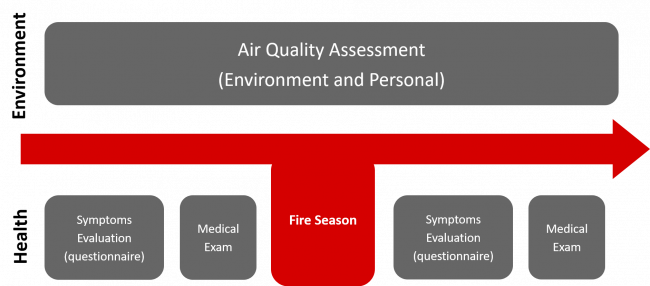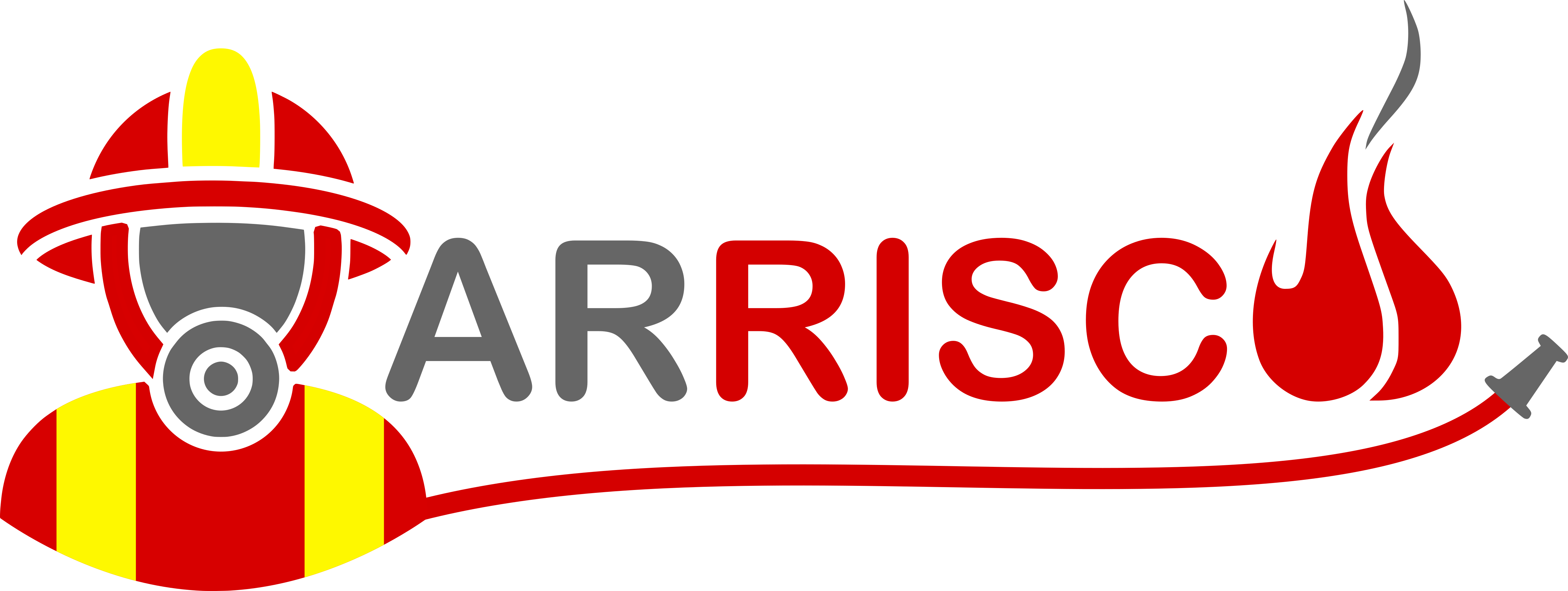CONTEXT
Although firefighting is one of the most dangerous occupations, the impact of exposure on occupational diseases has been poorly studied. However, due to the existing scientific consensus, which alerts for the increasing number and intensity of fires due to climate change, the concerns about the impacts of forest fires on human health has been increasing.
Most of the people is aware of the impacts that ambient (outdoor) air pollution have on health, namely irritation of the eyes (red eyes), nose and throat, and impacts on respiratory tract.
Particularlly, firefighters during their occupation are in greater risk of adverse health effects due to exposure to high levels of potentially harmful substances. Depending on the pollutants, concentrations, time of exposure and vulnerability of the professionals exposed, air pollution may cause health problems more or less severe, like airway hypersensitivity, asthma attacks, allergies (particularlly in people with atopy) and changes in cardiopulmonary function.
WHY STUDYING THE IMPACT ON FIREFIGHTERS?
Several studies reported that firefighters are commonly exposed to significant levels of carbon monoxide and other air pollutants, including formaldehyde and suspended particulate matter, and as such they are considered a risk group. Moreover, firefighting increases the risk of prevalence and incidence of Chronic Obstructive Pulmonary Disease (COPD) and asthma in firefighters and exacerbates respiratory symptoms.
OBJECTIVES
The project “ArRiscO – Firefighters’ occupational exposure to air pollution – impact on COPD and asthma” (PCIF/SSO/0101/2017), funded by Fundação para a Ciência e Tecnologia (FCT), has the main goal of assessing the long-term effects of air pollution exposure to forest fires combat on firefighters, namely regarding Chronic Obstructive Pulmonary Disease (COPD) and asthma, to quantify differences between exposed and non-exposed individuals. It also intends to identify the pollutants that may increase the prevalence and incidence of COPD and asthma by applying strategies to reduce their exposure.
METHODOLOGY
This study intends to evaluate the exposure of firefighters to smoke resulting from fire emissions by measuring atmospheric pollutants (carbon monoxide, nitrogen oxides, suspended particulate matter, and volatile organic compounds) with personal exposure monitors during forest fire combat, in Viseu District.
Moreover, based on the answers to validated questionnaires and on medical exams, that will be performed by medical doctors of Centro Hospitalar Universitário de São João (CHUSJ) and Faculdade de Medicina da Universidade do Porto (FMUP), the study will assess the prevalence, incidence and exacerbation of COPD and asthma on firefighters, considering both short and long-term effects.

ArRiscO project was approved by the Ethics Commission for Health of Centro Hospitalar Universitário de São João (CHUSJ), Porto. All data are anonymized and protected to guarantee confidentiality.
Financially supported by: Project PCIF/SSO/0101/2017 with financial support from FCT/MCTES through national funds (PIDDAC).

